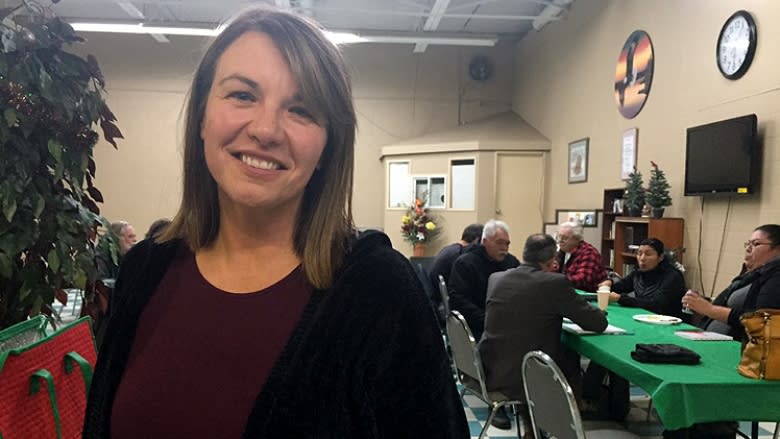Kehewin Cree Nation councillor plans 40-km horseback healing journey
Ben Badger first watched the documentary film Dakota 38 a few years ago.
The film follows Jim Miller, an Indigenous spiritual leader who had a dream about travelling across South Dakota to Mankato, Minn., where he found 38 of his Dakota ancestors hanged.
The dream alluded to the hanging of 38 Dakota chiefs and warriors by the U.S. government — the largest mass execution in the country's history.
In 2005, he and a group of riders travelled more than 530 kilometres to honour their ancestors and to heal themselves. The documentary follows the riders on the annual journey in 2009.
Badger had a similar dream. It was summertime — there was a circle ceremony and all his people were wearing traditional attire with paint. Suddenly, he heard a loud warrior cry. Warriors on horses with war paint stormed in.
"The people in the dream felt at peace," Badger said Saturday. "They felt protected."
It was that dream that inspired Badger to try to protect his own people and organize his own ride for the Kehewin Cree Nation.
Badger, a councillor for the First Nation northeast of Edmonton, is screening Dakota 38 in nearby St. Paul on Sunday to show community members how the ride can be used as part of their healing journey.
He, along with Miller and two other community members, will host a panel discussion after the showing.
"The Indigenous people in the States are taking that step of reconciliation, but not reconciling with what happened, but reconciling with the trauma that resides within," he said.
Badger said he and his community are still in the process of organizing the ride, but are aiming for June 20 — the day before National Indigenous Day.
Riders will travel 40 kilometres from Kehewin Cree Nation to Blue Quills First Nations College, which was formerly the site of a federally sponsored, church-operated residential school.
"We want to acknowledge the survivors that went to that school — there were horrendous things that happened," Badger said. "There was probably some good intention there, but a lot of times, people with good intentions can still do massive harm."
There will be events planned before and during the ride, including honouring sacred sites in the area, Badger said. Every person who participates in the ride will also make a vow to help heal themselves.
"They're going to bring a solution to themselves about how to bring healing to their lives," Badger said.
He said he's hoping the documentary screening will show members of the community the internal healing a ride like the Dakota 38 trip can provide.
Open minds
Tanya Fontaine, a member of the St. Paul reconciliation committee, is also on the panel Sunday. Fontaine is of Ukrainian descent, but has been fascinated by First Nations culture, and learned Cree as an adult.
She said she hopes the panel will help increase understanding about reconciliation.
"We're trying to open people's minds," Fontaine said Saturday.
Her role on the reconciliation committee is to bring Indigenous and non-Indigenous people together in educational settings, of which this panel is a perfect opportunity to do so, she said.
"I can play a role — in a very small way, of course — in supporting that and showing non-Indigenous people that there's a different way of being, that we don't have to dictate, that we don't have to be centre stage," she said.
Showing the film isn't just for those who might go on the healing journey, Fontaine said.
"Sometimes, the general public has the perception that reconciliation is something for Indigenous people — and as non-Indigenous people, we have to realize that this is for us [too]."
'It's going to be painful'
Badger has struggled with the murder of his brother over the past year. As he worked through the trauma, he said he saw parallels to how Miller and his group of riders healed themselves.
It inspired him to travel to the U.S. to see the ride in person.
"It's been one of the hardest tasks for me as a man that I've had to go through to forgive the murder of my brother," he said.
"I needed to go to a space where they do that ride every year to forgive what happened there."
It also inspired him to organize the panel and the local ride, as he said he has seen the value in healing from within.
"It's not easy, but it can only happen when I do my work," Bager said. "I think that's a little bit of the spirit that we're going to be bringing to the panel and to the ride.
"It's going to be painful. But through that pain, there will be immense healing."




